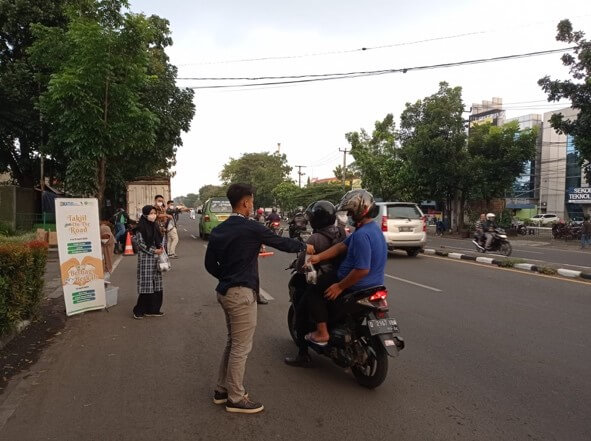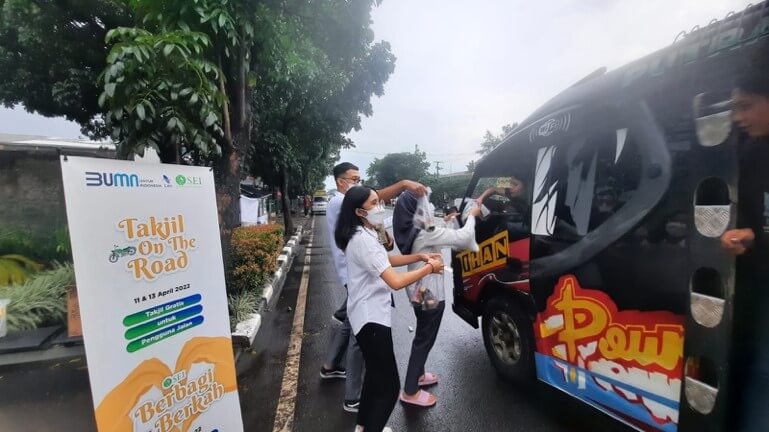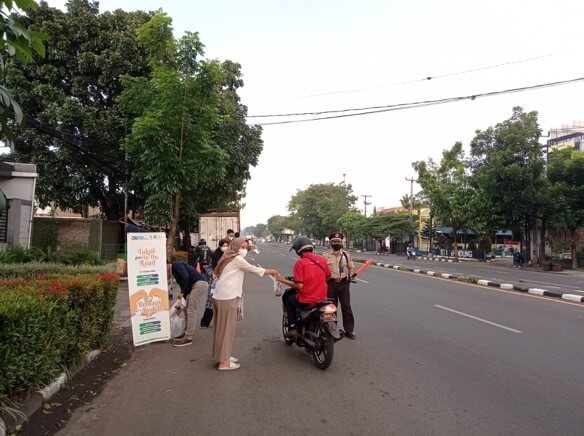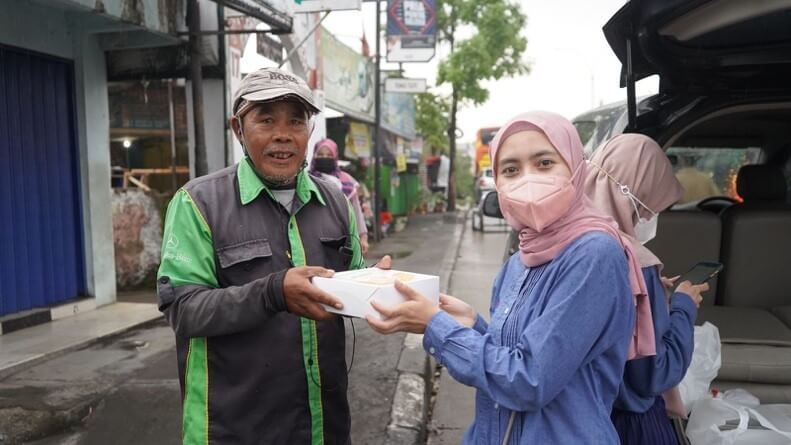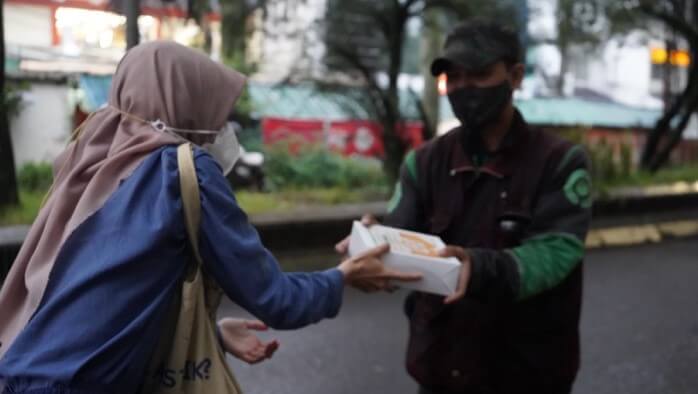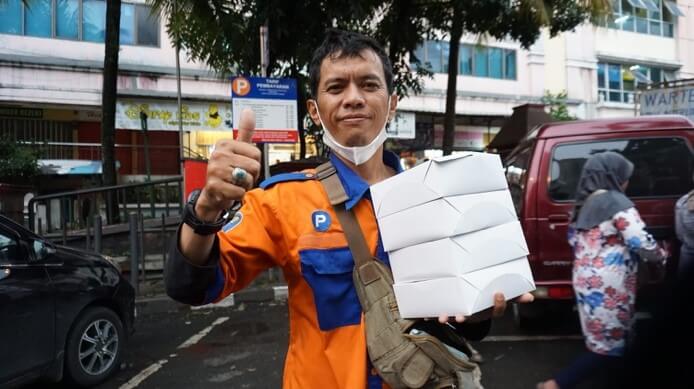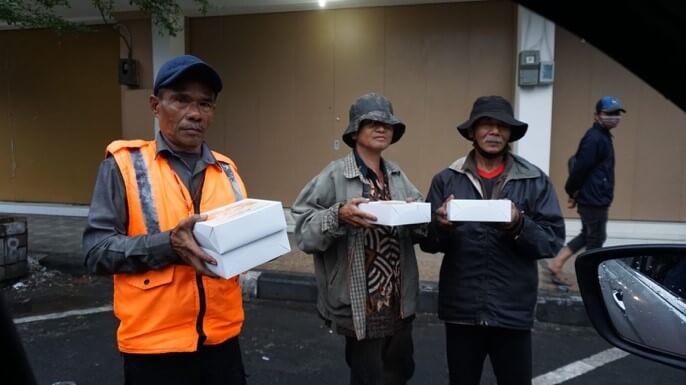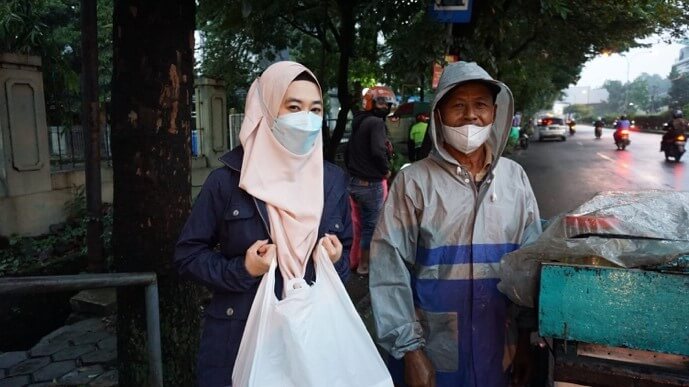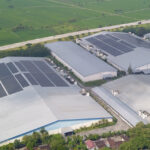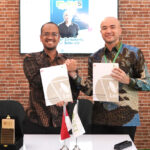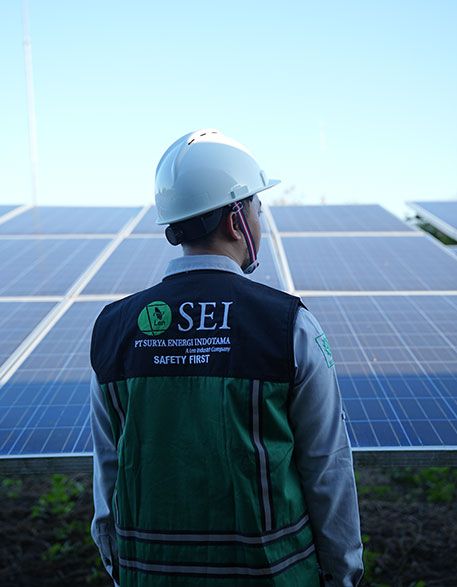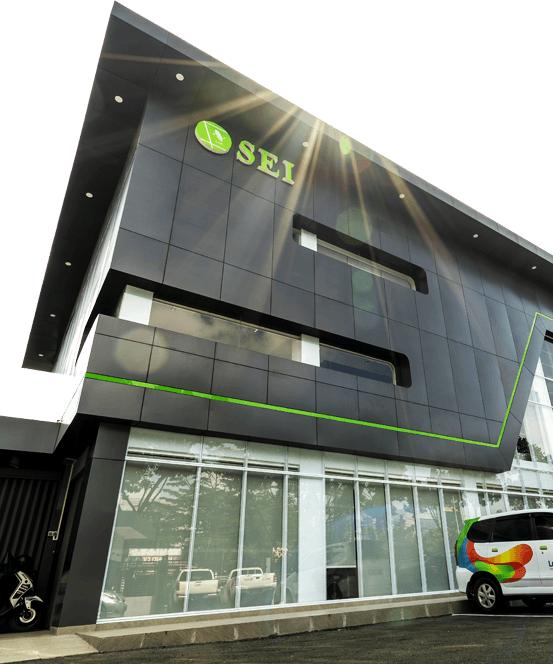Category: News
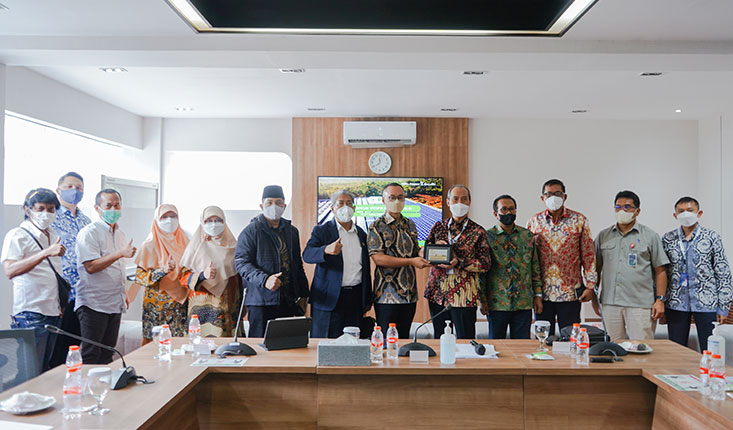
Specific Working Visit of Commission VII of the Indonesian House of Representatives to PT SEI: Focus on Upstreaming of the PLTS Industry and Electricity Connections in 3T Regions
Bandung, (24/06/22) – PT Surya Energi Indotama (PT SEI) is one of the companies targeted by Commission VII of the Indonesian House of Representatives in conducting a series of Working Visits of Commission VII of the Indonesian House of Representatives in charge of energy and industry. This Specific Working Visit targets discussions on the development of new renewable energy infrastructure, especially solar panels in Indonesia.
The discussion was attended by Members of Commission VII of the Indonesian House of Representatives led by H. Eddy Soeparno S.H., M.H. as Deputy Chairperson of Commission VII of the Indonesian House of Representatives, Bambang Iswanto as President Director of PT SEI, Wiluyo Kusdwiharto as Director of Mega Projects and EBT of PT PLN, Andriah Feby Misna, S.T., M.T as Director. of Various EBT ESDM, M. Arifin as Secretary of the Directorate General of ILMATE, Liliek Widodo as Director. of Metal Industry of the Ministry of Industry, and Linus Andor Mulana Sijabat as Director of Business Strategy & Portfolio of PT Len Industri (Persero).
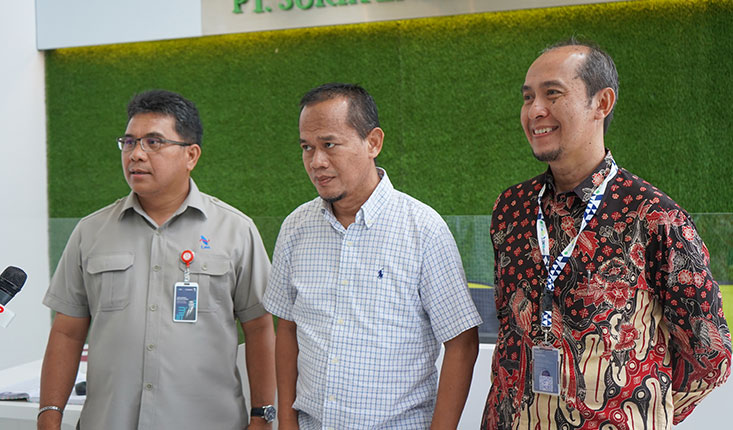
One of the objectives of this Specific Working Visit is to get an overview of the problems faced and the support expected by PT Len and PT SEI in developing solar panel infrastructure in Indonesia, as well as to find out the effectiveness of the government's role in overcoming various problems faced by communities in the regions.
This objective is motivated by the facts that currently there are very large opportunities for domestic industries to develop businesses in the PLTS sector. However, production capacity in Indonesia is still long and expensive compared to other countries. Added to this is the lack of integration of the solar panel industry components from upstream to downstream.
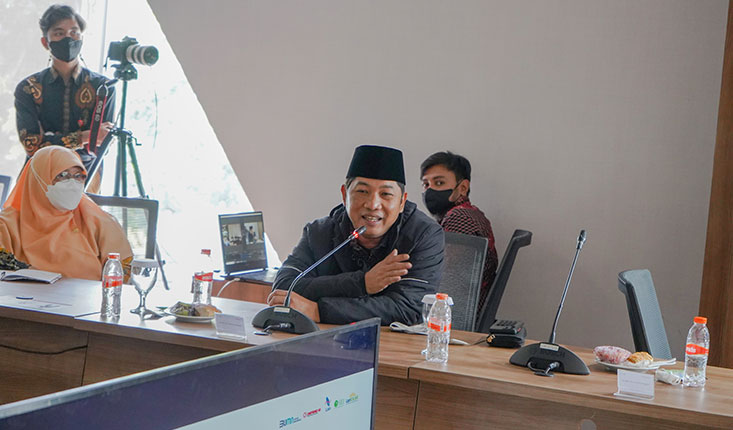
As a pioneer of solar panel companies in Indonesia that has been operating for 14 years, PT SEI always strives to develop the solar panel industry so that it is quickly accepted by the community. On this visit, in addition to discussing upstreaming, Bambang Iswanto as President Director of PT SEI also emphasized that PLTS must be able to be present as a solution in the 3T (Outermost, Disadvantaged, Frontier) areas.
"The 3T areas are our focus where the people there also have the right to get access to electricity, and PLTS can be a solution," said Bambang Iswanto.
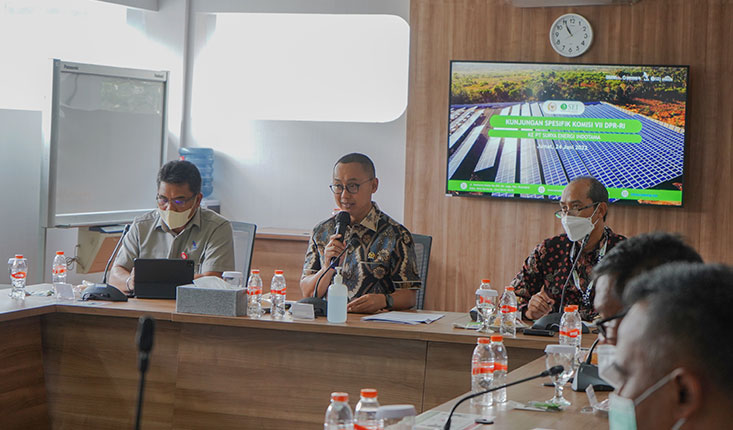
Deputy Chairman of Commission VII of the Indonesian House of Representatives, Eddy Soeparno, also said that there are still many 3T areas that have not been fully connected to electricity. In fact, with the abundant sunshine in Indonesia, it can be utilized to develop solar panels in these areas.
"The areas that are prioritized in this development are areas that have not yet been comprehensively connected to electricity, especially in the 3T areas. And if the government can program this, perhaps the industrial sector can survive and on the other hand, the areas that still have 3T can be helped," explained the politician from the National Mandate Party (PAN).
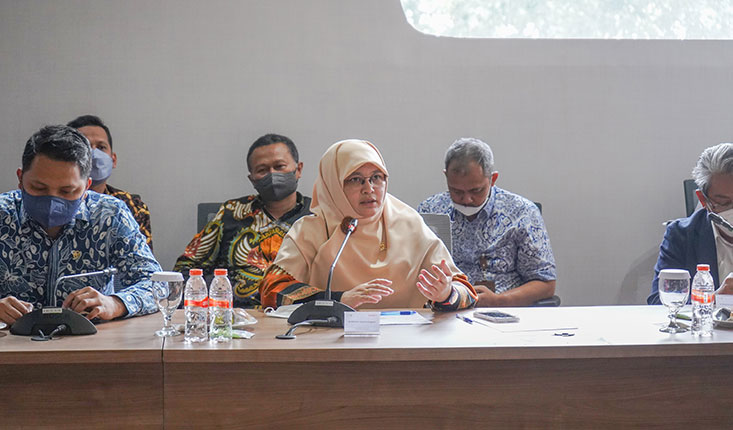
PT SEI has long been actively building PLTS systems in 3T areas. One of them is by building solar-powered BTS Signal Towers in remote areas. With government support, it is hoped that this PLTS will be the leading solution for all 3T areas in Indonesia. So it is complete, starting from the focus of upstream to downstream implementation that is beneficial to the community.
PLTS is one of the government's priority programs to achieve the target of developing EBT by 23% in 2025. The potential for solar energy in Indonesia is also very high and is starting to have competitive prices. Therefore, synergy is needed between the Government as a regulator, PLN as an operator, the industry as a producer, and the community as consumers so that they are able to accelerate the utilization of solar energy potential as soon as possible.
Berita Lainnya
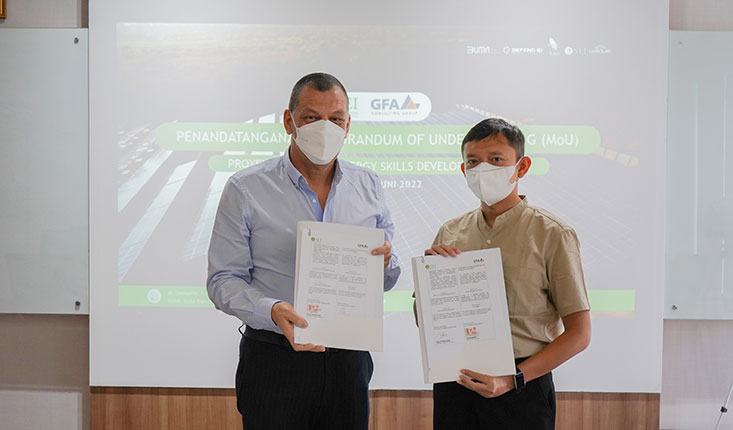
PT SEI’s Collaboration in Developing Competent Human Resources with the Renewable Energy Skill Development Project
Bandung, (08/06/2022) - As an effort to improve the quality of students and also knowledge in the field of renewable energy, in this case PT SEI signed a memorandum of understanding with GFA Consulting Group as the project implementer mandated by the Swiss Government - the Government of the Republic of Indonesia for the implementation of the RESD (Renewable Energy Skill Development) project which aims to support the design, planning, installation, operation and maintenance of renewable power plants in Indonesia competently through the provision of quality Human Resources (HR).
The memorandum of understanding was signed by Fajar Miftahul Falah as the Director of Engineering and Operations of PT SEI and also Martin Stottele as the RESD Team Leader. The event held at the PT SEI office was also attended by GM Engineering PT SEI Eric Agustian, GM Project Management, Production and After Sales Feni Khairulvani, and HR Manager Marulina Tantra. Meanwhile, from RESD, Bakhtiyar Salam as the RESD Component Manager - Formal Education, and Dian Elvira Rosa as the RESD Component Manager - Communications were also present.
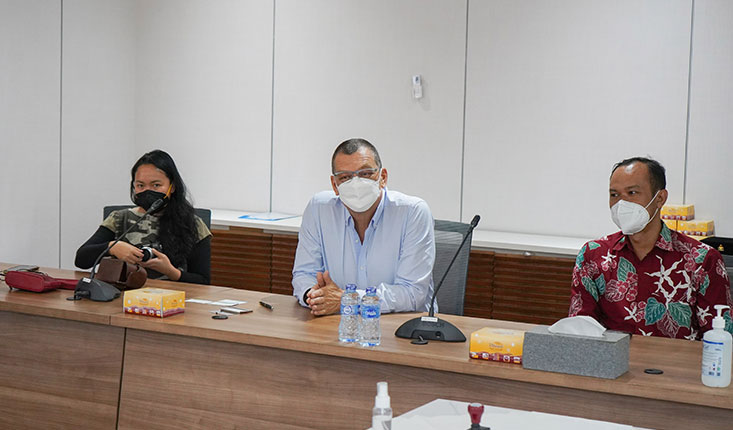
This collaboration is based on an agreement between both parties to improve the quality of graduates from the Job Training Center (BLK) which has now changed its name to the Vocational and Productivity Training Center (BPVP) and also the Polytechnic under the RESD series. The training institutions selected to benefit from this project include BPVP Ambon, BPVP Banda Aceh, BPVP East Lombok, BPVP Ternate, and PPSDM-KEBTKE. Meanwhile, the Polytechnics under the auspices of RESD include the Energy & Mineral Polytechnic PEMAKAMIGAS Cepu, Bali State Polytechnic, Ujung Pandang State Polytechnic, Jakarta State Polytechnic, Manado State Polytechnic. The signing of this memorandum of understanding is an opportunity for PT SEI to take part in developing education, especially in the field of renewable energy by providing input on the renewable energy curriculum, providing training at selected BPVPs, and providing field work opportunities for selected Polytechnics where students can later be placed in various site projects or departments that can be a means of learning for participants.
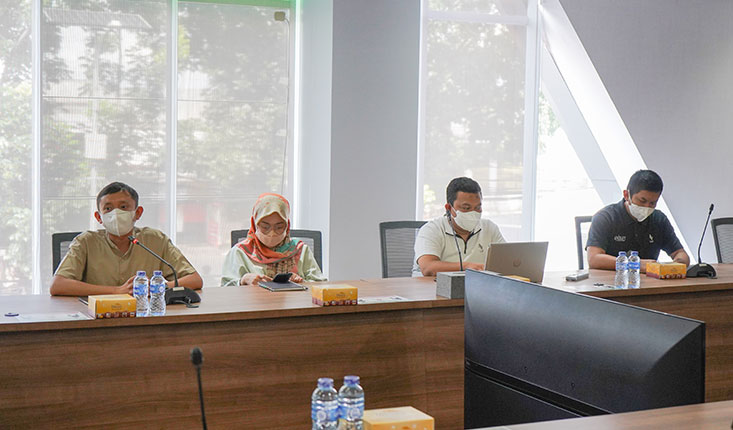
Berita Lainnya
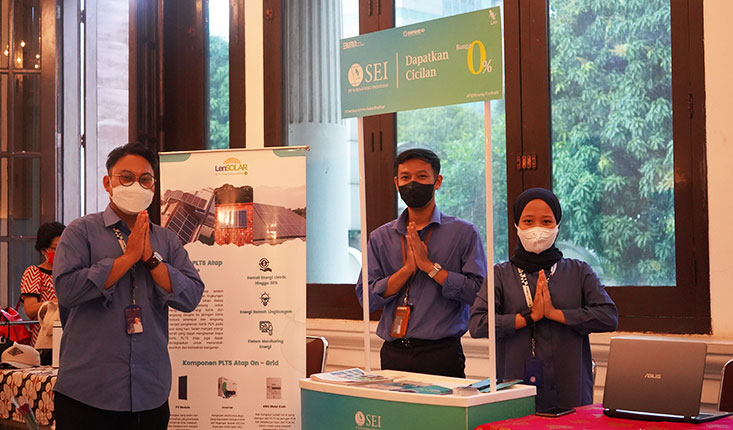
Expanding Energy Sustainability Education, PT SEI and LenSOLAR Present Booth Stand at the 2022 Indonesia Kirana Exhibition in Jakarta and Bandung
Jakarta, (05/31/22) - As a company engaged in renewable energy, PT SEI continues to strive to maximize the dissemination of information about the importance of energy sustainability in the use of PLTS. This led PT SEI to open a booth stand with LenSolar at the Jakarta Arts Building (GKJ) at the 2022 Indonesia Kirana Pre-Competition Concert.
The event was a concert by the Padjadjaran University Student Choir (PSM Unpad) as part of their departure for the European Grand Prix For Choral Singing competition in mid-June. The activity, which was attended by more than 300 spectators, became a potential for SEI to be able to disseminate information about PLTS as a total solution for the community.
At the available booth stand, visitors were presented with information about installing Rooftop PLTS at home which is useful for saving electricity. LenSOLAR also provides a special promo for visitors to the Indonesia Kirana Pagelaran in the form of a 15% discount and 0% installments with a 12-month tenor.
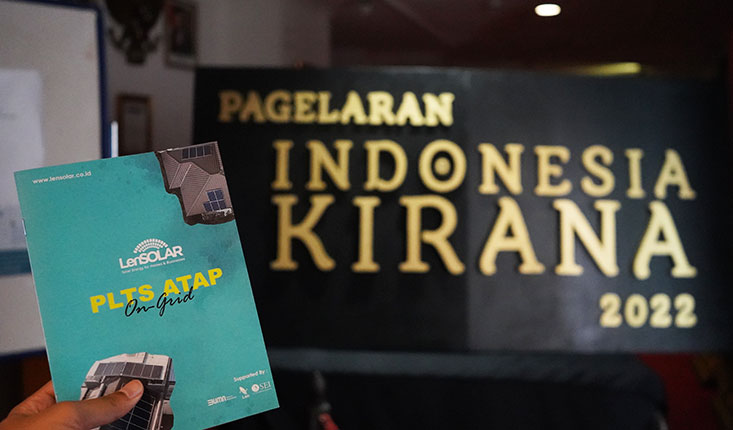
The large number of spectators who attended was also supported by various groups and different backgrounds, so that it became a positive value for PT SEI to increase the target segmentation of education. The presence of PT SEI in this activity is certainly a form of support for PSM Unpad friends to continue to advance to make Indonesia proud. SEI realizes that young people are the successors of the nation, all forms of support for them will be very meaningful for the sustainability of the nation's generation.
Seeing the enthusiasm of the visitors to the event, PT SEI together with LenSOLAR will be present on June 3 to reopen the booth stand at the 2022 Indonesia Kirana Pre-Competition concert which will be held at Grha Sanusi Hardjadinata, Padjadjaran University, Bandung. Don't forget to watch the Indonesia Kirana Event and visit the PT SEI booth stand with LenSOLAR!
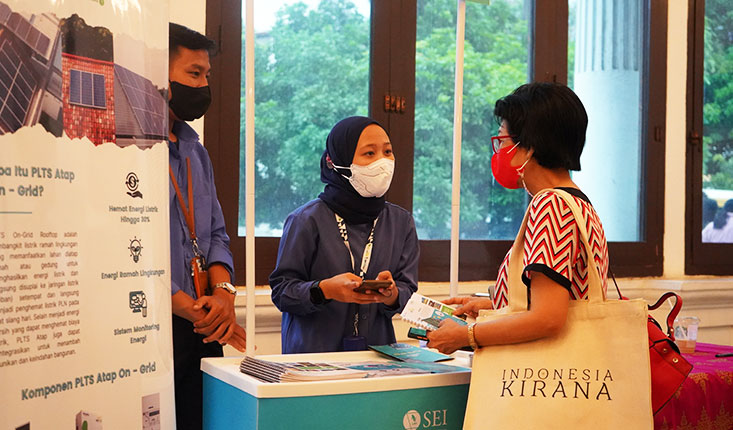
Berita Lainnya
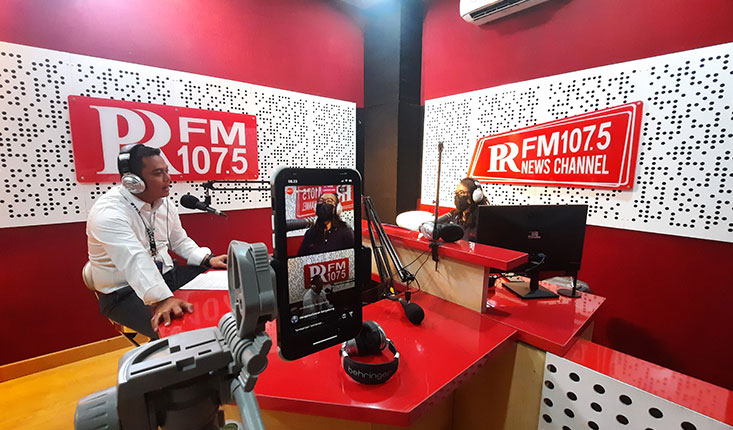
Cool! The Public is Enthusiastic to Follow LenSOLAR’s Live Streaming and Business Talkshow with PRFM Bandung
Bandung, (05/30/22) - In order to increase understanding of the PLTS trend among urban communities, LenSOLAR in collaboration with PRFM held a Business Talkshow with the theme "New Trends in Solar Energy for Urban Communities" which was conducted via live streaming on Instagram @lensolar.id and @prfmnews, as well as on air on 107.5 FM on Monday (05/30), at 08.00-09.00 WIB.
I Made Sandika Dwiantara as the Director of Marketing and Business Development was the main speaker who explained how the use of PLTS is starting to become a trend among urban people. "In 2021-2022, it can be said that the (solar energy) industry is sunrise. With the issues and now we are hosting the G20 related to energy sustainability, it is easier for us to penetrate the use of PLTS. Currently, it is quite easy to invite people to switch to solar energy. The majority are in urban areas," said Made.
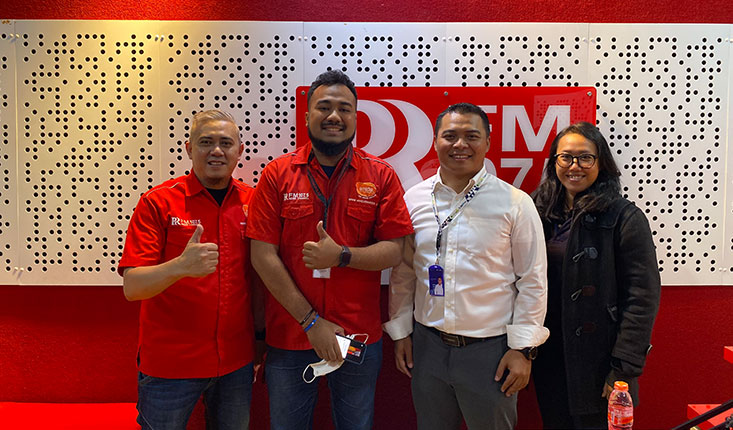
Although the talk show was broadcasted in the morning, the enthusiasm of PRFM listeners and Instagram live streaming was very high. Questions were asked one after another, making the talk show hosted by Donna as the PRFM announcer at that time even more exciting and full of information. Starting from questions about the integration system with conventional electricity, the land needed for the installation of PLTS, to the price list and promos offered. Several PRFM listeners also expressed their interest in using solar power as a solution to saving electricity in urban areas.
With this talk show, PT SEI together with LenSOLAR hopes that the public will be more confident in switching to using new renewable energy. For people who already have the intention to apply solar power in their homes, this talk show is a means of introducing the company to the public to become partners in the vision of saving energy and reducing carbon emissions in our environment. (**)
Berita Lainnya
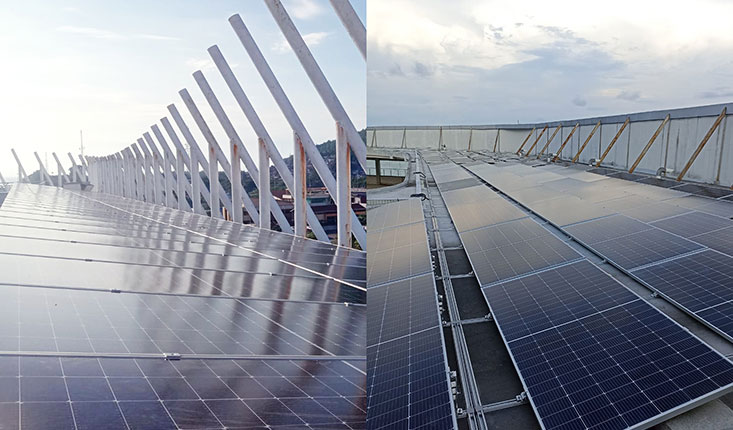
Merak and Bakauheni Ports Will Soon Be Powered by Solar Power!
Cilegon (05/24/22), Not only in office or residential environments, solar power plants (PLTS) are now also starting to be applied in port areas. One of those that applies it is Merak Port in Banten and Bakauheuni in Lampung.
In addition to of course aiming to obtain savings and efficiency of electricity loads in the port environment, the construction of this PLTS is also based on cooperation between BUMN through the BUMN synergy program, related to the utilization and use of EBT in the BUMN environment.
The construction process of this PLTS has begun based on cooperation between PT Indonesia Ferry Properti (PT IFPRO) and PT Surya Energi Indotama (PT SEI) as a subsidiary of BUMN PT Len Industri (Persero). With the Build Operate Transfer (BOT) scheme, the PLTS will be installed on the roof area of the Sosoro Mall Merak Executive Terminal of 324 kwp, and the Anjungan Agung Mall Bakauheuni Executive Terminal of 189 kwp with a total capacity of 513 kwp.
For PT SEI, this project is one of the achievements as a developer in the solar energy sector. The transformation of PT SEI, which previously played a large role as an EPC, will continue to develop into a solar energy developer company that has good capabilities and quality. Until now, the progress of the PLTS construction is still ongoing. It is hoped that by the end of May 2022, all PLTS can be installed so that several facilities at the Merak and Bakauheni Port Executive Terminals can immediately be powered by solar power. This is part of how we support the use of more environmentally friendly clean energy and reduce carbon emissions on our earth. (**)
Berita Lainnya
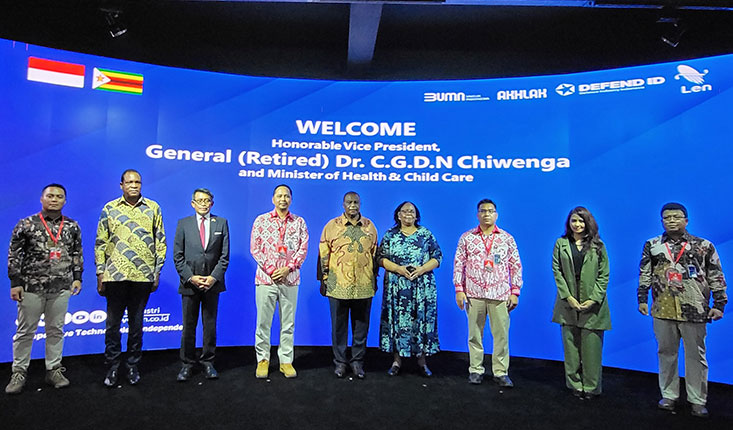
Kunjungi PT Len, Pemerintah Zimbabwe Kembali Jajaki Kerja Sama di Bidang Energi Tenaga Surya
Bandung, (20/05/22) Zimbabwe's Vice President and Minister of Health and Child Protection, Constantino Chiwenga, visited PT Len Industri (Persero) on Friday (20/05). Accompanied by Zimbabwe's Minister of Land, Agriculture, Fisheries, Water & Settlement Hon. J. Masuka, Zimbabwe's Ambassador to Indonesia Shofia Nyamudeza, Indonesian Ambassador to Zimbabwe HE Dewa Made Juniarta Sastrawan, and other delegates, the group intended to explore potential cooperation with PT Len's subsidiaries, namely PT LRS in the field of railway technology and PT SEI in the field of solar energy.
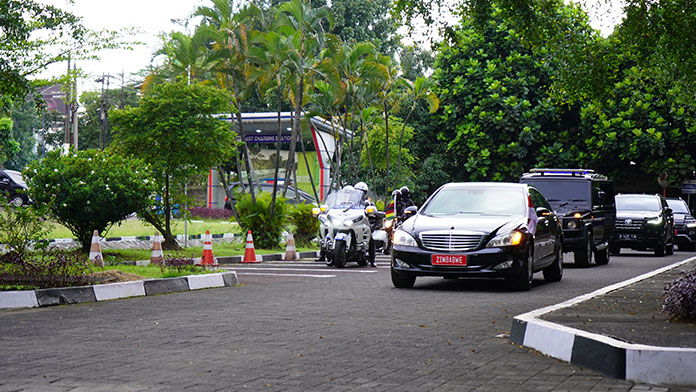
This visit is the second time that the Zimbabwean Government has explored cooperation, especially in the field of solar energy. Zimbabwe's Ambassador to Indonesia Shofia Nyamudeza visited PT Len in 2020 accompanied by the President Director of PT Surya Energi Indotama (PT SEI), Bambang Iswanto, in a discussion on the potential for cooperation in the construction of PLTS in Zimbabwe. In fact, in 2019, PT SEI had conducted a survey in Zimbabwe to explore the cooperation.
Director of Marketing & Business Development of PT SEI, I Made Sandika, in his presentation before the visiting delegation explained how PT SEI can provide products, services and Off Grid & On Grid PV System Solar Power Plants (PLTS), Hybrid PV System and others.
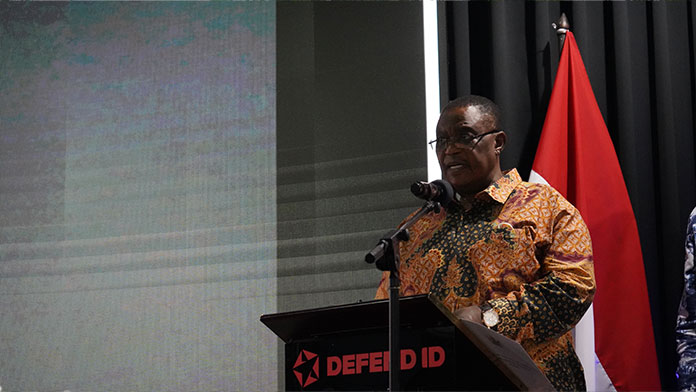
"Since 2019, PT SEI has initiated collaboration with Zimbabwe Power Company (ZPC), Zimbabwe Energy Regulatory Authority (ZERA), Rural Electrification Fund (REF), and Ministry of Energy and Power Development (MoEPD)," Made added.
In addition to overcoming the energy crisis, the presence of PLTS is also being eyed by the Minister of Defense, Agriculture, Fisheries, Water & Settlement of Zimbabwe, Hon J. Masuka to create an integrated farming system with the procurement of solar-powered water pumps. This was explained by Dewa Made as the Indonesian Ambassador to Zimbabwe.
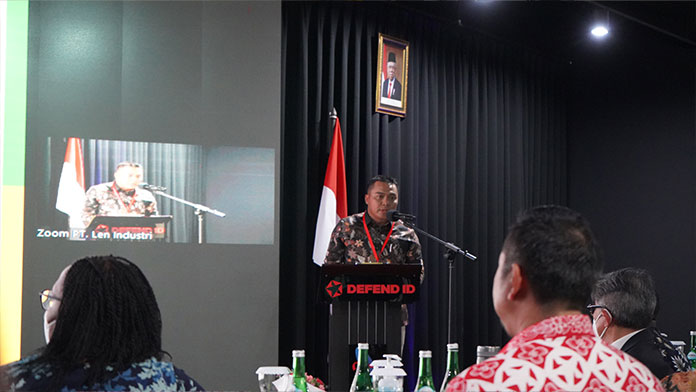
"They want to create an integrated farming system. After preparing tractors and agricultural tools, because the water conditions there are also quite difficult, they want to create a water pump that uses solar energy as its energy source."
PT SEI is always ready for all cooperation opportunities, both as an EPC and Developer. This is in accordance with the tagline and spirit of PT SEI this year, namely "Transformation To Be Future Developer". PT SEI is also able to expand its business portfolio abroad for the progress and existence of the company. At the end of the visit, the delegation of guests also directly reviewed the production facilities at PT Len Industri, starting from railway signaling system electronics to solar module fabrication which has a production capacity of 71 MWp/year. (**)
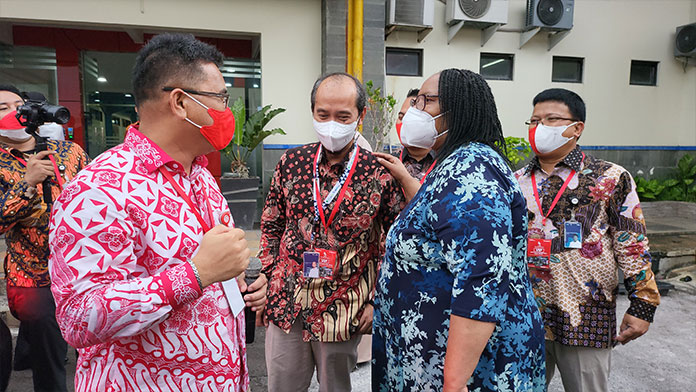
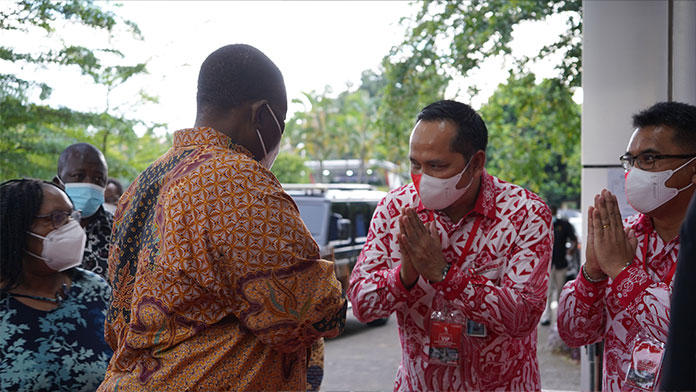
Berita Lainnya
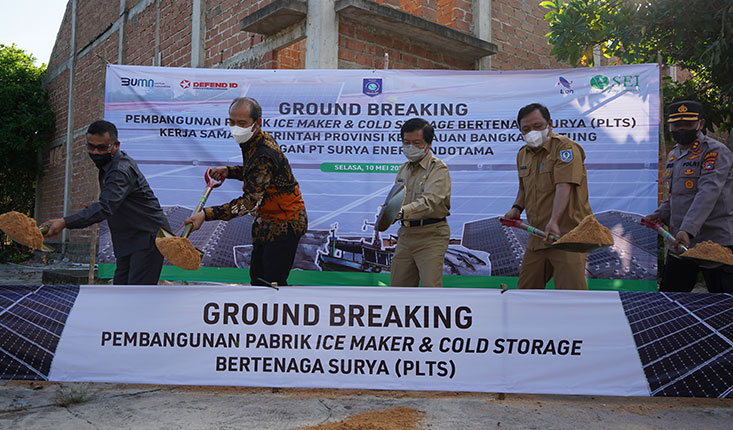
PT SRI’s Breakthrough in Building an Ice Maker and Cold Storage Factory in Collaboration with the Bangka Belitung Islands Provincial Government
(South Bangka, 10/05/22) Groundbreaking for the Construction of a Solar-Powered Ice Maker and Cold Storage Factory which is a collaboration between the Bangka Belitung Islands Provincial Government and PT Surya Energi Indotama (PT SEI) has been held. Taking place in Tukak Sadai, South Bangka Regency, this event was attended by the Deputy Governor of the Bangka Belitung Islands Drs. Abdul Fatah, Representatives of the South Bangka Regency Government, PT SEI as an investor, Forkopimda, Bumdes, village officials, and representatives of fishermen from 5 surrounding villages.
At the event, Abdul Fatah placed sand material as a symbol of the start of construction. With him, Bambang Iswanto as President Director of PT SEI, Musani as Deputy Chairman of the South Bangka Regency DPRD, Haris Setiawan as Representative of the South Bangka Regency Government, and Joko Isnawan as the South Bangka Police Chief also took part in the symbolic procession.
"This (development) is a hope for the economic progress of the community, especially in Tukak Sadai Village," said Abdul Fatah.
The construction of the Solar-Powered Ice Maker and Cold Storage Factory is one of the answers to the problems of fishermen in Bangka Belitung, especially Tukak Sadai. The limited freshness of fish, shrimp, or other sea catches occurs because the need for ice or cooling is not met in the temporary storage process or shipping. Fishermen are also unable to sell their catch to further areas or store their catch for longer.
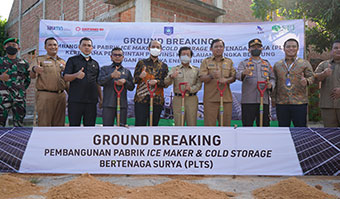
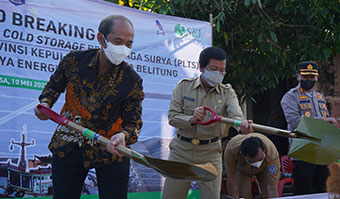
With the availability of more ice from the Ice Maker Factory, fishermen can use it to maintain the freshness of their catch. Moreover, the demand for ice for fishermen in Tukak Sadai, which is predicted to be the second highest village contributing to fish catches in Bangka, has only been met by 28 tons of the need for around 80 tons/day.
This development has been initiated jointly by the provincial government and PT SEI. As a company that has a vision as a solution to community problems, PT SEI, which is also a subsidiary of PT Len Industri (Persero) and part of the Defense Industry BUMN Holding DEFEND ID, is ready to be part of the solution.
In addition to being able to contribute to meeting the needs of ice and cooling for fishermen's catches in Bangka Belitung, this Solar-Powered Ice Maker and Cold Storage Factory is also able to answer the need for clean energy and reduce carbon emissions from the installed PLTS.
"This is a really good and excellent development condition. We use New Renewable Energy with solar power. "Hopefully today's Ground Break will become a reality tomorrow and the day after, and will be beneficial for us," said Abdul Fatah in his speech.
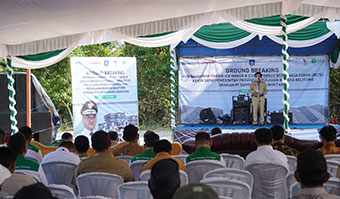
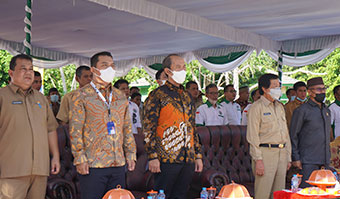
Tukak Sadai in South Bangka Regency will be a pilot project for the construction of an Ice Maker and Cold Storage Factory which does not rule out the possibility of being built in other villages. "This is an example of how to build an ice maker and cold storage into one integrated unit. Of course, if after this we do it, it is possible that this implementation will be carried out in other areas," said Bambang Iswanto in his speech.
The Bangka Belitung Islands Provincial Government has high hopes that development like this will continue and become a trigger for other areas as an effort to improve the economy of the surrounding community. For PT SEI, there is great hope that this development can be a new step in how the company can provide solutions for the community.
Berita Lainnya
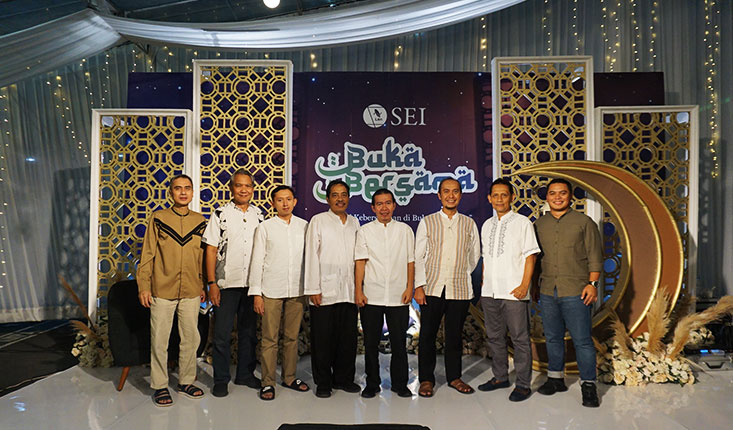
The Spirit of Togetherness Through Breaking the Fast Together at PT SEI
Bandung, (22/4/22) - As a form of excitement in the month of Ramadan, PT Surya Energi Indotama (PT SEI) held a Breaking Fast (Bukber) activity held for all employees. The Bukber activity was carried out internally as a reminder for all employees to always be grateful for togetherness in this holy month.
PT SEI's Bukber was opened with Tilawah and Sari Tilawah performed by PT SEI employees, namely Ilyas and Nindya. This activity was continued with remarks from PT SEI's President Director Bambang Iswanto, "This activity can be a moment of togetherness, because the most important thing is our togetherness. Our gratitude can be manifested through this togetherness."
On this occasion of the month of Ramadan, PT SEI also participated in holding the Ramadhan Singing Competition with more than 120 participants. The winners of the Ramadhan Singing Competition were invited to the Bukber event as a form of appreciation as well as to enliven the PT SEI Bukber event.
The atmosphere of Bukber PT SEI was felt so solemn with Tausyiah from Ust. Muhammad Ishak, "This is our opportunity and a valuable moment for us. This month is a month that teaches love in togetherness."
Although the Bukber activity was carried out for internal employees, PT SEI still carried out social service activities through the Corporate Social Responsibility (CSR) program by providing assistance to 6 orphanages as a form of concern that was symbolically handed over to representatives of the Al-Fadhila Orphanage.
PT SEI believes that togetherness is the key to the company's success. PT SEI will continue to support each other to achieve the company's common goals.
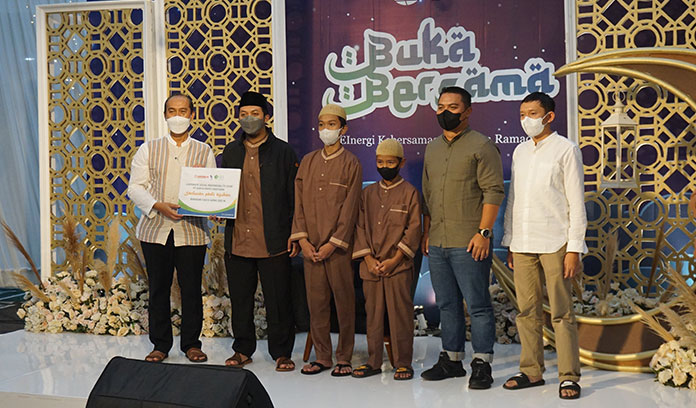
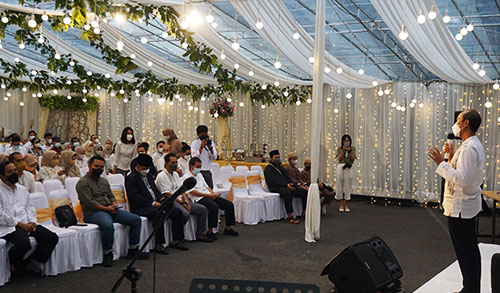
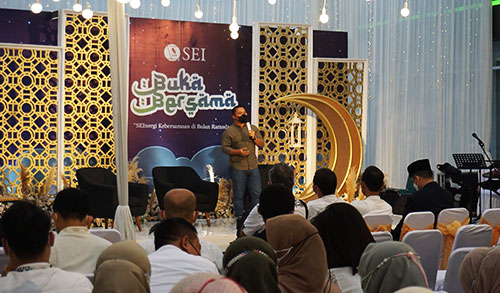
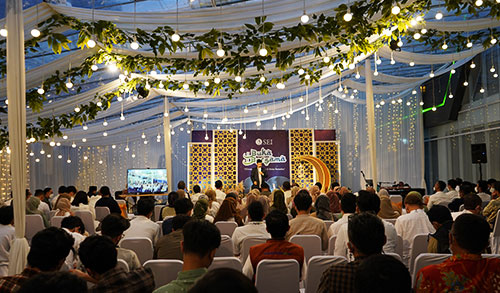
Berita Lainnya
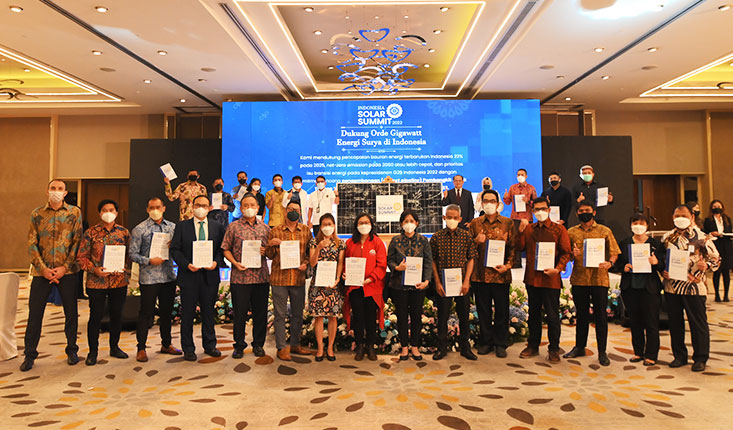
SEI Participates in Declaring Gigawatt Order of Solar Energy in Indonesia in ISS 2022
(Jakarta, 19/4/22) In order to mobilize the potential for solar energy investment in Indonesia and accelerate the use of PLTS to achieve the National Energy Policy (KEN) target, the Ministry of Energy and Mineral Resources together with the Institute for Essential Services Reform (IESR) held the Indonesia Solar Summit (ISS) 2022 which took place at Pullman Jakarta Indonesia Thamrin CBD. The event, which aims to open the solar energy market, was attended by various parties, including PT SEI as a pioneering company in the solar energy sector.
At the event, various stakeholders in the solar energy sector made a declaration of commitment to developing solar energy involving the Central Government, Regional Governments, developers, investors, up to end users or business actors such as Commercial & Industry. The declaration was marked by the signing of a commitment on a solar module which is a symbol of the solar energy industry.
PT SEI together with 31 other companies have declared themselves to build PLTS with a total capacity of 2.3 GW in 2022 and 2023 which includes rooftop PLTS (the largest percentage), above-ground PLTS, and floating PLTS. In addition, there is also a plan to build a supporting component factory for PLTS in Indonesia. With this commitment, it will certainly provide a breath of fresh air for solar energy investment in Indonesia.
Before the peak event in the form of a declaration was carried out, there was a series of ISS events that had been held. Starting from the G20 workshop, the development of PLTS in Indonesia and the World, to discussion forums. All companies participated in this activity with the aim of actively contributing to Indonesia's energy independence, especially the use of solar power as part of New Renewable Energy (EBT).
Solar Energy Potential in Indonesia
As is known, the potential for solar energy in the country is not trivial, reaching 207.8 Giga Watts (GW). However, until the end of 2021, the installed capacity of the Indonesian PLTS has only reached 200.1 Mega Watts (MW).
Secretary General of the Ministry of Energy and Mineral Resources Ego Syahrial at the ISS 2022 event said that solar energy will play an important role in providing national electricity, especially in Indonesia's energy transition roadmap to achieve Net Zero Emission (NZE) by 2060. The reason is, of the 587 Giga Watts (GW) of new renewable energy (EBT) generating capacity targeted to operate in 2060, 361 GW or more than 60% is planned to come from solar energy.
Ego explained that the government has at least three major programs for utilizing solar energy, namely rooftop solar power plants, large-scale ground-mounted solar power plants, and floating solar power plants.
"The implementation of these various programs requires contributions from many parties, not only the government, business area holders, and renewable energy developers, but also energy users, such as the commercial and industrial sectors," said Ego at the 2022 Indonesia Solar Summit, Tuesday (19/4/2022).
Berita Lainnya
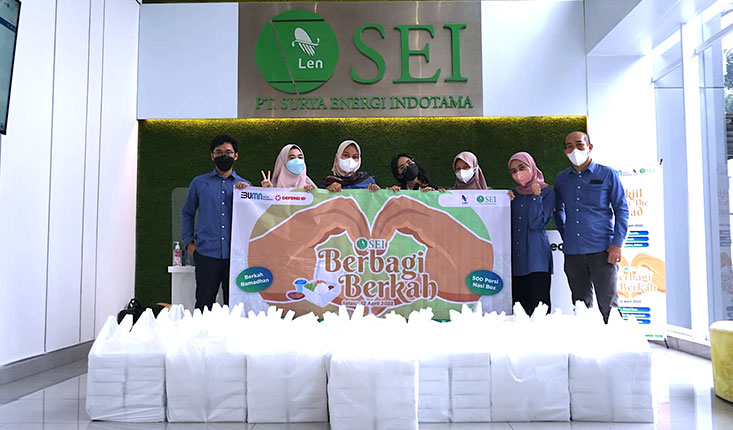
Sharing Kindness in the Month of Ramadan
Bandung, (13/04/2022). PT SEI carried out a series of takjil sharing agendas on April 11 and 13, 2022 and interspersed with the distribution of rice boxes which was carried out on April 12, 2022. Takjil was distributed as many as 200 packages and rice boxes were distributed in a total of 500 portions. This activity was carried out in the PT SEI environment which was coordinated by the Public Relations department and in collaboration with other departments.
This agenda is an annual agenda of PT SEI which is carried out every month of Ramadan as a form of social and gratitude with the aim of increasing a sense of concern for the community in the PT SEI environment. The provision of takjil and rice boxes is targeted at street workers, public transportation drivers, online motorcycle taxis, and other people in need.
